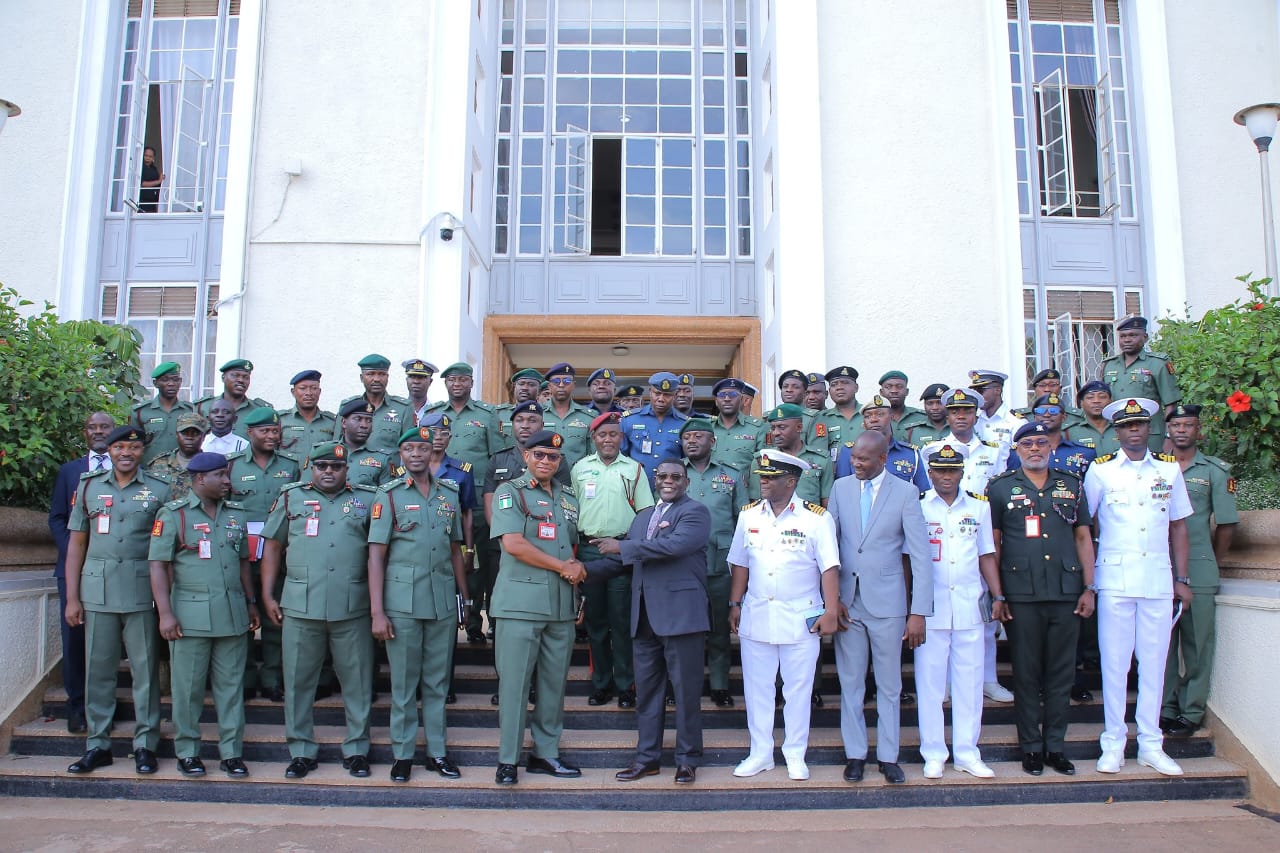Buganda kingdom has warned against divisive politics, saying that such politics is the root cause of persistent conflict in many nations.
This message was delivered by the First Deputy Prime Minister of Buganda, Prof. Twaha Kigongo Kaawaase, during a meeting with a group of military officers from Nigeria who visited Bulange, Mengo, as part of their study program on traditional leadership systems and their role in promoting peace and stability in their home country.
Kaawaase welcomed the guests on behalf of the kingdom and briefed them on Buganda’s rich history, the Kingdom’s administrative structure, and how it collaborates with the Central Government despite the country being filled with multi-party political competition.
“Our country has politics that we know very well to be divisive. As a kingdom, we do not involve ourselves in national partisan politics. We welcome everyone who comes to the palace.
However, we often hear different interpretations—when we appreciate something from government, the opposition says we speak for government; when we appreciate something from the opposition, government says we collaborate with them. But this does not divert us from our mission; we do not participate in partisan politics,” Kaawaase said.
Prof. Kaawaase also expressed concern about the challenges young people face in Uganda, warning that if youth are not supported to live decent lives, they may be pushed into conflict as they struggle to achieve the good life their leaders have failed to provide.
He explained that the kingdom prioritizes empowering youth in economic development, leadership, and other life-enhancing initiatives.
He encouraged leaders in Nigeria to create opportunities for young people so as to reduce the persistent conflicts affecting their nation. He also emphasized the importance of unity, describing it as one of the fundamental pillars that help nations maintain peace.
“Since the 1966 crisis, which led to the late Kabaka Muteesa II going into exile, the conflict arose because the Kabaka had been given the presidency, something that displeased the then Prime Minister Obote, who decided to abolish the kingdom. When the Kingdom was restored in 1993, we placed great emphasis on unity so that the Kabaka and the people of Buganda remain together in harmony and in large numbers,” Prof. Kaawaase said.
Brig. Gen. Nuc Ogili, who led the visiting delegation, acknowledged that over the past 40 years Uganda has enjoyed relative peace with no large-scale conflict.
He attributed this to the cooperation between the people and the government, guided by strong cultural leadership—especially Buganda, which has the biggest population and a well-established leadership structure.
He said this was one of the main reasons they came to the Buganda palace: to learn from the Kingdom how similar practices could be applied back home.
The visitors were senior officers from the Nigerian Armed Forces and students at the Nigerian Armed Forces Command and Staff College and they toured the Buganda Parliament, the Lubiri (palace) at Mengo, and the Kasubi Royal Tombs


